| Name | Description | Involved in Projects | |
|---|---|---|---|
The Research Centre for Atmospheric Physics and Climatology of the AA is addressing both global and regional climate changes in different space and time scales. The Centre has established collaborations with many European Research Centers, as well as Greek Institutions and Ministries. It focuses on climate and air quality processes at global and local scales through both observational analyses from satellite and surface platforms and climate modelling studies. | |||
Armines is a private non-profit research and technological organisation (RTO) funded in 1967, having common research centres with partner engineering schools: Paris (Mines ParisTech), Albi-Carmaux (IMT Mines Albi-Carmaux), Alès (IMT Mines Alès), Douai (IMT Lille Douai), Nantes (IMT Atlantique) and SaintEtienne (Mines Saint-Etienne), gathering public and private personnel and means, to collaborate on an arms lengths basis and perform research contractual activities and academic research training. | |||
| Biosense | BioSense Institute (BIOS) coordinates, focuses and advances research, introduction and promotion of state-of-theart ICT solutions in agriculture, ecology, environmental protection, water management and industry. BioSense Institute is an internationally recognized multi-disciplinary scientific research institute and a regional provider of advanced information and communication technologies (ICT) in agriculture and environmental monitoring. Institute has a special focus on micro and nano-technology sensors, Internet of Things, Robotics, Remote Sensing and Big Data. BioSense has been active in GEO for the last 10 years - coordinated and participated in a number of GEO FP7/H2020 projects. Recently, BioSense Institute signed an agreement with ESA to establish BioSense data mirror site for Copernicus program. | ||
| Central Institution for Meteorology and Geodynamics | Zentralanstalt für Meteorologie und Geodynamik (ZAMG) offers a broad range of services, from weather forecasts to climate and earthquake monitoring as well as the constant analysis and prediction of atmospheric pollutants. ZAMG provides state-of the-art in-house supercomputer facilities and powerful databases containing qualitycontrolled meteorological measurements to calibrate our models and perform ongoing climate change assessments. ZAMG also represents Austria in major international organizations such as the World Meteorological Organization (WMO) and EUMETNET. | ||
Centre for Environment and Development for the Arab Region and Europe | The Centre for Environment and Development for the Arab Region and Europe (CEDARE) was established in 1992 as an international organization, with diplomatic status. Cedare addresses current and emerging environmental issues in the areas of climate change, coastal zone management, waste management, genetically modified organisms, etc. The programme also focuses on crosscutting themes, such as public participation (with a focus on women and youth), peace and environment, environmental education, environmental impact assessment, and the socio-economics of sustainable development. | ||
The Centre for Research and Technology-Hellas (CERTH) is situated in Northern Greece and is one of the largest Research Centres in the country. CERTH has important scientific and technological achievements in many areas including Energy, Environment, Industry, Mechatronics, Information & Communication, Transportation & Sustainable Mobility, Health, Agro-biotechnology, Smart farming, Safety & Security, as well as several cross-disciplinary scientific areas. | |||
Deltares is a leading international research institute for applied geophysical, ecological and policy-related research and development applied to delta areas (marine, coastal, estuarine, and riverine) based in the Netherlands. The primary aim of Deltares is bringing together science and application by translating scientific knowledge into innovative solutions. Throughout the world, the institute’s advanced expertise enables safe, clean and sustainable living in deltas, coastal areas and river basins. Deltares has a leading or coordinating role in various EU programs, including Ecopotential, CleanSea, CoBiOS, KNOWSEAS, MESMA, VECTORS, ODYSSEA, and GREEN. | |||
The Centre for Ecological Research and Forestry Applications (CREAF) is a public research institution created in 1987 and located in Catalonia. CREAF’s main objective is to generate knowledge and create new methodological tools in the fields of environmental sciences and ecology. | |||
| Environmental Agency Austria | EAA was established in 1985 and is the environmental specialist institution of the Austrian Federal Government. It provides expertise on the condition of the environment and environmental changes as well as on measures to avoid or reduce environmental pollution. The EAA Department for Ecosystem Research & Environmental Information Management deals with long term ecosystem monitoring and collection of data, semantic data management, as well as the coordination of regional research activities and networking in the field of LTER. EAA currently coordinates the H2020 INFRAIA project eLTER (European Long Term Ecosystem Research). | ||
| EuroGeoSurveys | EuroGeoSurveys (EGS) is the organisation of the Geological Surveys of Europe, the national institutions responsible for the geological inventory, monitoring, knowledge and research for the security, health and prosperity of society. EGS has played an active role in GEO as a Participating Organisation and is a member of the European GEO High Level Working Group. Project engagement in the area of Earth Observation has been growing in recent years, with a very successful experience in the PanGeo project, providing a geohazard information service to Europe using INSPIRE compliant data, in support of Copernicus. | ||
The Fondazione Centro Euro-Mediterraneo sui Cambiamenti Climatici (Fondazione CMCC) is a non-profit research institution that investigates and models our climate system and its interactions with society and the environment to provide reliable and rigorous results, which in turn stimulate sustainable growth, protect the environment and develop science driven adaptation and mitigation policies in a changing climate. Since 2006, CMCC hosts the IPCC National Focal Point, a link between IPCC and the national scientific community. Members of CMCC staff have been serving as negotiators in the United Nations Framework Convention on Climate Change (UNFCCC) process. | |||
| European Association Of Remote Sensing Companies | The European Association of Remote Sensing Companies (EARSC) is a professional industrial body (trade association) with the mission to foster growth of the Earth-observation (EO) services sector. Formed in 1989, we are a Brussels-based, non-profit-making organisation, with members from throughout Europe, actively involved in coordinating and strengthening the EO chain and promoting the European geo-information industry. We have a small secretariat based in Brussels, a board of directors to oversee the activities and determine the strategy of the Association and working groups that deal with specific topics. | ||
The Finnish Environment Institute (SYKE) is a research and development institute located under the auspices of the Ministry of Environment, having a strong emphasis on supporting the decision-making processes. SYKE’s responsibilities include environmental research and monitoring, publishing and disseminating the results, providing expert services to the national administration and international organisations, and maintaining information and data base systems. SYKE has also actively contributed to GEO BON and development of the Essential Biodiversity Variables (EBVs). | |||
The Finnish Meteorological Institute (FMI) is a service and research agency under the Ministry of Transport and Communications. The relevant team of FMI includes two units: (a) Space and Earth Observation Centre (FMISPACE) and (b) Climate Change Research Programme (FMI-CC). FMI-SPACE carries out research related to space weather, climate change at the high latitudes, cold regions applications (including traffic) and is the main FMI unit for Earth Observation (EO) research and development. FMI-CC is the main unit for climate change modelling and analysis research and development. FMI represents Finland in WMO, EUMETSAT, ECMWF, GEO, EuroARGO, ICOS, EuroGOOS, ArcticROOS and in various bodies of ESA and EU. Copernicus Relay partner and coordinator of Finlands Copernicus User Forum. | |||
The Centre National de la Recherche Scientifique (CNRS) is a state-funded science and technology establishment placed under the authority of the French Minister for Research with around 25.000 people. The mission of CNRS is to assess and conduct any research of utility to the advancement of science and to the economic, social and cultural progress of France. The Laboratoire d’Optique Atmosphérique (UMR8518 - LOA), http://www-loa.univ-lille1.fr/, is a Joint Research Unit between CNRS and University of Lille 1. LOA, located in Lille, has a well-known expertise in remote sensing and study of tropospheric/stratospheric aerosols and clouds. LOA is one of the worldwide key laboratories operating the AERONET network (Service National d’Observation PHOTONS) and developing retrieval algorithms for both ground-based networks (sun-photometer and LIDAR) and space-borne missions (POLDER, MODIS, PARASOL and the future 3MI in 2020). | |||
| German Aerospace Center | The German Aerospace Center (DLR) is the national aeronautics and space research centre of the Federal Republic of Germany. Its extensive research and development work in aeronautics, space, energy, transport, digitalisation and security is integrated into national and international cooperative ventures. In addition to its own research, as Germany’s space agency, DLR has been given responsibility by the federal government for the planning and implementation of the German space program. | ||
| German Meteorological Service | The Deutscher Wetterdienst (DWD) is the National Meteorological Service of Germany, established in 1952. Based on national law its core task is the provision of services for the protection of life and property in the form of weather and climate information. This includes the meteorological safeguarding of aviation and marine shipping and the warning of meteorological events that could endanger public safety and order. DWD has other important tasks such as the provision of weather and climate services to the government, the federal states, and the institutions [820852] [E-SHAPE] – Part B 102 administering justice. In addition, DWD is entrusted with the fulfilment of international commitments by the Federal Republic of Germany with respect to meteorological and climatological issues. | ||
The Helmholtz Centre for Environmental Research - UFZ, Germany, was established in 1991. It is one of the world’s leading research centres in the field of environmental research, and has many years of proven relevant expertise in coordination of long-term operated, integrated environmental monitoring programs and infrastructures. UFZ coordinates the current ESFRI initative eLTER - European Long-Term Ecosystem and socio-ecological Research Infrastructure. Within eLTER, the UFZ is also lead-managing the process of infrastructure design, standardization and harmonization and was instrumental in developing the eLTER framework of standard observations. | |||
The Helmholtz-Zentrum Geesthacht Centre for Materials and Coastal Research (HZG) is one of 18 members of the Helmholtz Association of German Research Centres, Germany’s largest science organisation. HZG comprises four research institutes – among them the Institute of Coastal Research. Founded in 2001 the latter has three main divisions: "Biogeochemistry in Coastal Seas", "Operational Systems" and "System Analysis and Modelling". Research is focused on coastal processes including interaction between land, sea and human being. The common aim of the scientists is the assessment for current and future changes in coastal areas, thus creating a scientific basis for a sustainable and forward-looking coastal management. | |||
The Icelandic Meteorological office (IMO) is a goverment organisation under the Ministry of Environment and Natural Resources. The institute is responsible for monitoring all natural hazards within Iceland. | |||
| Institute for Atmospheric and Earth System Research | Institute for Atmospheric and Earth System Research (INAR), University of Helsinki has over 30 years of experience in atmospheric research. 150 scientists and doctoral students are currently engaged in this area. The main research subjects are aerosol dynamics, atmospheric chemistry, climate change, dynamic and radar meteorology, forest-atmosphere interactions, aerosol-cloud-climate interactions, and urban air quality. With the multidisciplinary team structure and comprehensive measurement and modeling tools, INAR is one of the few groups in the World capable of efficiently combining the climate change, greenhouse gases, trace gases, aerosol. | ||
ICOS ERIC as a long-term European Research Infrastructure has been developed over the last 10 years to be the observational backbone of a European GHG research, information and verification system, and as such an important building block in a global information system. ICOS ERIC legal entity is established to coordinate the operations of the distributed European Research Infrastructure 'Integrated Carbon Observation System' (ICOS), to distribute information from ICOS to user communities and to establish integrated data and analysis from GHG observation systems. The mission of ICOS is to enable research to understand the greenhouse gas (GHG) budgets and perturbations. ICOS provides high precision, standardized long-term observations required to understand the present state and predict future behaviour of the global carbon cycle and GHG emissions. | |||
The Interbalkan Environment Center (IBEC) serves as an international cluster of new technologies and innovation linking together the public and private sectors for sustainable management of natural resources and protection of the environment. IBEC has had a continuous presence in leading research and innovation activities in the Balkan Peninsula and Europe. | |||
Founded in 1972, IIASA is an international scientific institute that conducts policy-oriented research into problems too large or complex to be solved by one country or academic discipline, or of common concern to many countries that require national and international cooperation (climate change, energy security, population growth, and sustainable development). Funded by scientific institutions in the Americas, Europe, Asia Oceania and Africa, IIASA is independent and unconstrained by political or national self-interest; it is a not-for-profit registered association in Austria. Its mission is to “provide insights and guidance to policymakers worldwide by finding solutions to global and universal problems through applied systems analysis in order to improve human and social wellbeing and protect the environment.” | |||
The Istituto Nazionale di Geofisica e Vulcanologia (INGV) is a Government institutions with eight main departments located in Rome, Milan, Pisa, Bologna, Naples, Palermo and Catania. INGV is the largest European institution dealing with research in Geophysics and Volcanology. The main mission of INGV is the understanding of the Earth System and the mitigation of the associated natural risks. | |||
The Luxembourg Institute of Science and Technology, LIST, covers with its 630 employees the domains of materials, environment, and IT. As a Research and Technology Organisation and with its interdisciplinary impact driven approach, LIST contributes to the development of Luxembourg’s economy and society. In the environmental domain, LIST develops strategies, technologies, and tools to better monitor, assess, use and safeguard natural and renewable resources. Its research group "Remote sensing and modelling of natural resources", which is engaged with this proposal, has largely dedicated its activities on both applied and fundamental aspects related to the water cycle. | |||
Martin-Luther-University Halle-Wittenberg is an efficient, modern university, which maintains the highest requirements for teaching and research in social sciences and humanities as well as in natural sciences. MLU executes research grants funded by national, EU, and international funding organizations as well as by industry with a total volume of more than 50 Mio. € per year. Experienced in EU- funded projects from FP3 onward, the University keeps ready an EU-office with highly qualified administrative staff to support EU project management and execution. the German Centre for Integrative Biodiversity Research (iDiv) Halle-JenaLeipzig, one of four research centers funded by the German Research Foundation (DFG). iDiv and its founding institutions are already involved in vegetation-related databases, including the global vegetation database sPlot, the global trait database TRY and the German vegetation-plot database GVRD. Since 2014, iDiv hosts the Secretariat of the Group on Earth Observations Biodiversity Observation Network, GEO BON, one of the four flagships of GEO. | |||
Masaryk University (MU) in Brno is the second largest university in the Czech Republic with over 5,000 employees and 40,000 students. The Research Centre for Toxic Compounds in the Environment (RECETOX) is the largest department at the Faculty of Science of MU recognized internationally for the research on chemical exposures and their impact on ecosystems and human health. It has expertise in assessment of environmental monitoring, fate and impacts, human exposure, health effects and risks related to anthropogenic and natural toxins. It implements/participates in a number of international monitoring and data assessment projects as EMEP, MONET, GENASIS or GMP and is a lead partner of GEOSS in the area of HE2 (persistent organic pollutants). | |||
Mekeelle University, Institute of Geoinformation and Earth Observation Sciences (I-GEOS). As part of the University mission, the institute is currently focussing on academics, research and community services related to Geoformation and Earth Observation Sciences, and applications. The institute has a mission to advance the science of Geoscience and application on earth observation, and also to support the development endeavours of the country by creating innovation platform being backed by government funding but looking at creating public-private partnership that will build local capacity and innovation. The institute has international collaboration with Institutes in Europe, and USA, and national collaboration with several public institutes, including Information Network Security Agency (INSA). | |||
The National Observatory of Athens (NOA) has been historically nominated by the Greek government as the sole institution in charge of natural disasters monitoring, with a clear mandate to conduct innovative research for the benefit of the Greek citizens. At global level it hosts, a) the UNESCO Chair for Natural Disasters, established within the framework of UNESCO-BRESCE, b) the Secretariat of the South Eastern European (SEE) Disasters Risk Assessment and Mitigation Network, and c) the Focal Point on the Global Earth Observing System of Systems (GEOSS), one of the four national GEO Offices in the World. | |||
The National Research Council of Italy (CNR) is a public organization, its duty is to carry out, promote, spread, transfer and improve research activities in the main sectors of knowledge growth and of its applications for the scientific, technological, economic and social development of the Country. To this end, the activities of the organization are divided into seven macro areas of interdisciplinary scientific and technological research, concerning several sectors: biotechnology, medicine, materials, environment and land, information and communications, advanced systems of production, judicial and socio-economic sciences, classical studies and arts. CNR is distributed all over Italy through a network of institutes aiming at promoting a wide diffusion of its competences throughout the national territory and at facilitating contacts and cooperation with local firms and organizations. | |||
Physikalisch-Meteorologisches Observatorium Davos/World Radiation Center | The “Physikalisch-Meteorologisches Observatorium Davos und Weltstrahlungszentrum” (PMOD/WRC), is a division of the Schweizerisches Forschungsinstitut für Hochgebirgsklima und Medizin Davos (SFI DAVOS). The PMOD/WRC is a designated institute by METAS for solar irradiance and is a participant of the CIPM-MRA. PMOD/WRC has successfully managed a number of complex and time-critical projects, for example in the frame of space projects in cooperation with ESA, NASA, and CNES. | ||
IPMA, IP is a public institute of reference, with high scientific and technological capacity in the areas of Meteorology and Climate, Geophysics, Resources and Natural Hazards, Ocean, Fisheries and Aquaculture, with a strong national and international recognition in these areas of intervention. IPMA's mission is to promote and coordinate scientific research, technological development, innovation and the provision of services, ensuring the implementation of national strategies and policies in its areas of expertise, contributing to economic and social development It is invested as the national authority in a number of areas including, among others, seismology, weather and counselling to the management of ecosystems and fishery resources. | |||
The Foundation, named Centro Internazionale In Monitoraggio Ambientale (International Centre On Environmental Monitoring), is a not for profit organization under the Italian Legal Regulations. CIMA research deals with the study of uncertainty propagation in hydro-meteorological forecasting chains, the study of rainfall processes with the development of rainfall downscaling and hydrological models. CIMA has [820852] [E-SHAPE] – Part B 162 participated to several national and international DRR projects, it coordinated a number of FP7 projects, and has contributed to several FP7 and H2020 projects. | |||
SMHI is a public body with some 670 employees under the Swedish Ministry of Environment, running both governmental services and commercial businesses. SMHI is providing decision support to a broad range of endusers, based on meteorology, hydrology, oceanography and climatology information. The institute represents Sweden in the World Meteorological Organisation (WMO) and is the national data provider in its working domains. Currently, it is adapting according to EU open data strategy and the INSPIRE directive, is active in GEOSS and a partner in three on-going major GMES projects. | |||
DTU Wind Energy is the world’s largest public research institute for wind energy. The department is internationally recognized as being in the forefront of wind energy technology, and has provided a major part of the wind energy research in Denmark. Wind turbine and wind farm technologies (including Aeroelastic design, Structural design and reliability, Remote sensing and Measurement, Boundary layer meteorology and turbulence, Lightweight strong materials) are a core area of research for DTU Wind Energy. DTU Wind Energy has a long-standing tradition of utilising satellite products for wind, waves and sea surface temperature to support offshore resource assessment and modelling activities and has undertaken numerous ESA projects. | |||
Tel Aviv University (TAU) is a public university located in Ramat Aviv, Tel Aviv, Israel. With nearly 30,000 students, 1000 faculty and 7 faculties, TAU is Israel's largest university. The Laboratory for Remote Sensing (RSL) which is part in this consortium is situated at the Geography and Human Environment Department which is part of the Porter School of Environment and Earth Science within the Faculty of Exact Science. The RSL- TAU is the leading group in Israel for imaging spectroscopy, soil spectroscopy and spectral based remote sensing applications dedicated for soil, agriculture and environmental monitoring. | |||
The Chair of Biogeography is specialized in analyzing large-scale patterns and big data on biodiversity and ecosystems. Studies are ranging from global scale (all oceanic islands) to continental scale (Europe) and to regional scales (protected areas and landscapes). Biogeography is focused on spatial research questions including fieldwork, experiments, modelling and data mining. Combining biological information (e.g. on species, biomass, NDVI) with abiotic data (DEM, geology, soils, climate) is of particular concern. The group is specialized on analyzing the effects of extreme climatic events on biodiversity and ecosystem functioning. UBT will contribute to the showcases particularly related to environment, ecosystems, ecology, biodiversity, health and nature conservation. UBT has the capacity and experience to lead workpackages. Furthermore, we will contribute to WP on capacity building (schools). | |||
University of Calabria participates to the project with the research unit Labdoc, which is part of the Department of Languages and Education. It was created on April 23, 1996. Labdoc brings together all the expertise in the areas of archival and documentation studies at the University. The research activity of Labdoc mainly focuses on knowledge and information management methodologies, aiming at their acquisition, modelling, formalization, indexing and retrieving; on the definition of specialized lexicons, taxonomies, thesauri, ontologies and classification systems in different technical knowledge domains (such as health, building construction, tourism, etc.); on semantic mapping and integration of existing terminological resources; on corpus construction methodologies; on Linked Open Data and Semantic Web technologies. | |||
The University of Twente (UT), Faculty of Geo-Information Science and Earth Observation (ITC), Department of Natural Resources, The Netherlands. ITC was founded as an independent institute in 1950 and became one of the 5 faculties of UT since 2010. Its principal mission remains to assist developing countries in the process of human resource development in GeoInformation Science and Earth Observation and applications for natural resources, water resources, urban and regional planning and geo-information management and earth systems analysis. This includes the establishment of geographic information systems and the management of geo-information. |
Overview
Community Forums
Content Tools







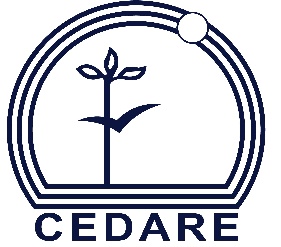




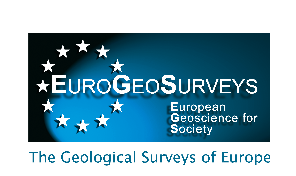
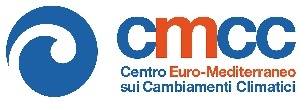
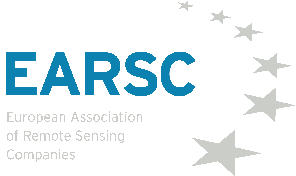
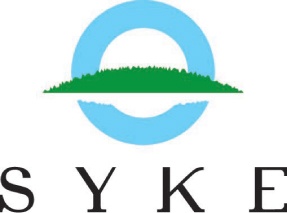
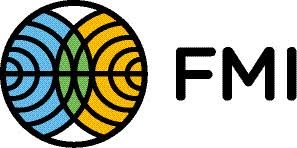




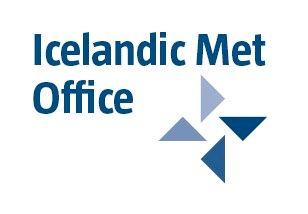
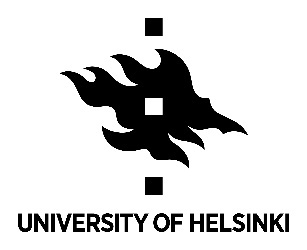
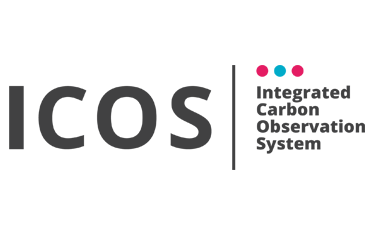




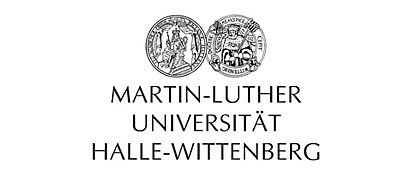

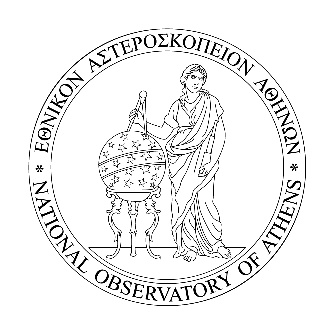



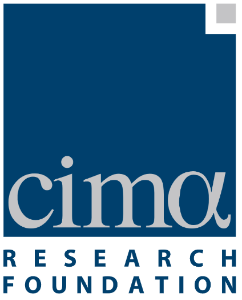






This page has no comments.